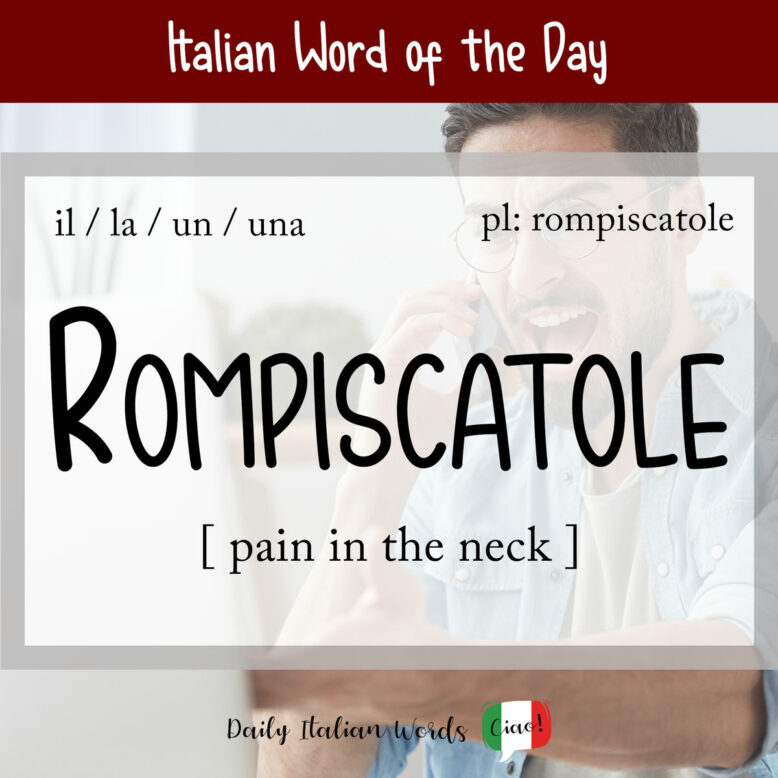Rompiscatole is what you would call a person who is a pain in the neck, nuisance or pest in Italian.
It is made up of two components – the verb rompere (to break) and the plural noun scatole (boxes) – so literally it translates as box-breaker!
Learn with our video

It is important to note that this particular noun doesn’t change in its feminine or plural forms. The best way to figure out the number and plurality of rompiscatole is to look at the article that precedes it.
- È un rompiscatole. = He is a pain in the neck.
- È una rompiscatole. = She is a pain in the neck.
- Sono dei rompiscatole. = They are a pain in the neck. (group of men or mixed group)
- Sono delle rompiscatole. = They are a pain in the neck. (group of women)
Il mio collega è un gran rompiscatole. Non lo sopporto più!
My colleague is a big pain in the neck. I can’t stand him anymore.
Just as there are rude variations on pain in the neck in English, so too are there numerous vulgar alternatives in Italian. One of the most common is rompipalle. It literally means ball-breaker with palle referring to the testicles. Some others include:
- rompiballe, an alternative pronunciation of rompipalle
- rompicoglioni, with coglioni being a more vulgar synonym for palle
- scassamaroni, with the verb scassare meaning to smash, and maroni being a euphemism for palle
As you can imagine, you will hear even more vulgar expressions than this in informal conversation but to keep things clean, we won’t mention them here. If you’re interested, take a peek at the very complete list on Parolacce.org.
As with any vulgar slang, feel free to use these words with your close friends and easy-going family members but try not to let them slip out in front of your nonna!
Che rompipalle che è il nonno! Oh, scusa nonna, non ti ho sentita entrare. Volevo dire: che gentile che è il nonno!
What a pain in the butt Grandpa is! Oops, sorry Grandma, I didn’t hear you come in. I wanted to say: how nice Grandpa is!

This article is also available in video format on our YouTube channel. The audio version can be found on Podbean, Google Podcast, Apple Podcast and Spotify.
Heather Broster is a graduate with honours in linguistics from the University of Western Ontario. She is an aspiring polyglot, proficient in English and Italian, as well as Japanese, Welsh, and French to varying degrees of fluency. Originally from Toronto, Heather has resided in various countries, notably Italy for a period of six years. Her primary focus lies in the fields of language acquisition, education, and bilingual instruction.


